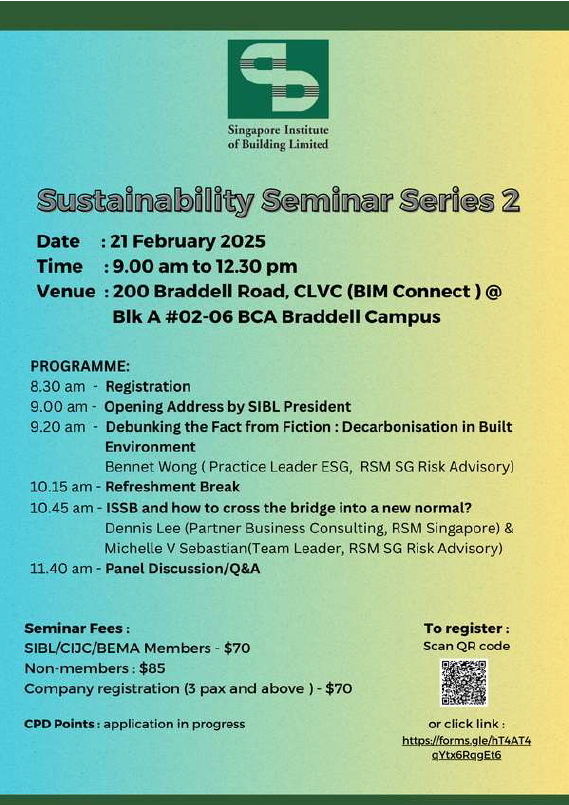
Decarbonisation is a cornerstone of any strategic climate management plan that seeks to align with national net-zero targets. Despite ongoing initiatives under the National Agenda to reduce emissions, the real estate and built environment sectors remain underprepared to address the transition and physical risks associated with climate change. Globally, the built environment accounts for nearly 40% of process-related emissions, while supply chain activities, such as materials, labour, and transport contribute up to 70% of global emissions.
This seminar offers valuable insights into how stakeholders within the built environment can begin to plan, target, measure, and report their emissions effectively. Participants will explore key themes around greenhouse gas (GHG) disclosures, stakeholder expectations, and the actions and targets that are essential for sustainable progress. The session will also address common challenges and pitfalls that may hinder meaningful change, focusing on strategies to ensure the long-term viability of climate initiatives in the sector.
Additionally, the seminar will examine Singapore’s regulatory evolution since 2017 in ESG and climate reporting. With upcoming deadlines in 2027 and 2030, there is an increasing need for businesses to consolidate their reporting frameworks, expand disclosure coverage, and improve techniques for quantifying emissions and assessing climate-related risks. Attendees will gain both technical and strategic insights into navigating these regulatory changes, ensuring compliance, and driving impactful sustainability efforts.
